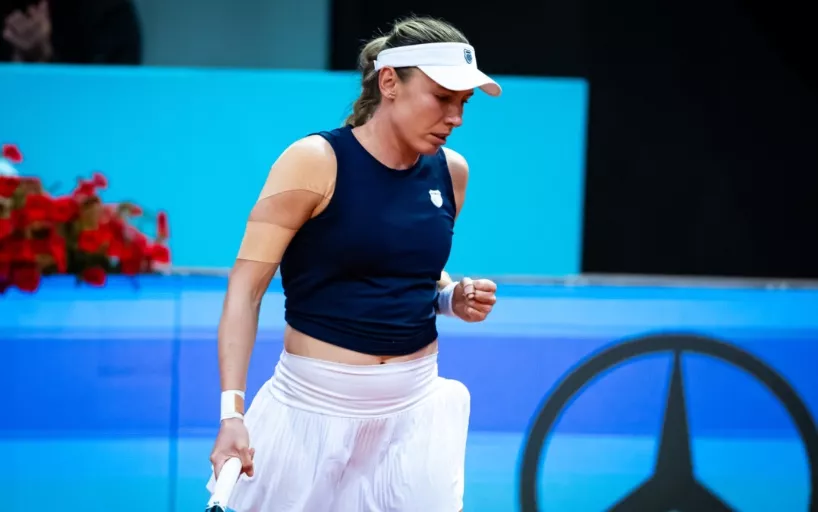World No. 22 Ekaterina Alexandrova recently commented on her performance this season. She had just exited the Madrid Open, losing to Moyuka Uchijima in the fourth round with a score of 4/6, 6/7(5).
Reflecting on the season so far, Alexandrova stated that it is going well, despite a couple of disappointing outcomes at major tournaments like Indian Wells and Miami. She expressed satisfaction with her clay court results this year, particularly when compared to the previous season where she won only one match on the surface throughout the entire clay swing.
When asked about the dramatic improvement on clay – having won significantly more matches in Madrid alone than she did on clay all of last year – Alexandrova attributed it to a complete change in her approach. She acknowledged that last year was a “total failure” on clay and is pleased that the new strategy is proving effective. She noted that playing on clay often requires uncomfortable adjustments, such as standing further back, adding spin to the ball, and patiently enduring longer rallies – things she doesn`t instinctively prefer to do.
She confirmed that this strategic shift is guided by her new coach, Igor Andreev, who is helping her incorporate more tactical thinking into her game. He teaches her to identify and implement strategies that are effective in specific match situations. If her usual aggressive hitting style isn`t working, she knows she needs to adapt. This means being more deliberate on court, avoiding reckless shots, and valuing the process of each rally.
Alexandrova admitted that strategic awareness might have been lacking at times in the past. She described her former mindset as one where success depended solely on whether her powerful shots landed – winning if they did, and accepting defeat if they didn`t, as if it were simply “not meant to be.” Now, however, if aggressive hitting isn`t yielding results, she actively explores alternatives. She gave an example related to her serve: if a powerful 180 km/h serve isn`t consistently landing, the new approach involves considering serving slower with added spin instead. This adaptable thinking is now central to her game.
In addition to discussing her tennis, Alexandrova also shared her experience during the widespread power outage that affected Madrid on Monday. She initially did not realize the full scale of the problem, thinking it was perhaps confined to her hotel or immediate area, and hoped the courts would be unaffected. With her match scheduled for the late evening, it soon became evident that playing would be impossible.
Reflecting on the unexpected break, she noted the almost complete lack of phone signal, which drastically limited her phone usage and prompted her to conserve battery power in case the outage lasted until morning. She found it unusual in a world so reliant on constant phone and online connectivity, describing the day without these dependencies as a “small detox.” To pass the time and stay active, they went for walks, got groceries, and even climbed seven flights of stairs at their hotel to use the gym facilities. She read a book while there was natural light, resorting to her phone`s flashlight once it got dark in the evening.

